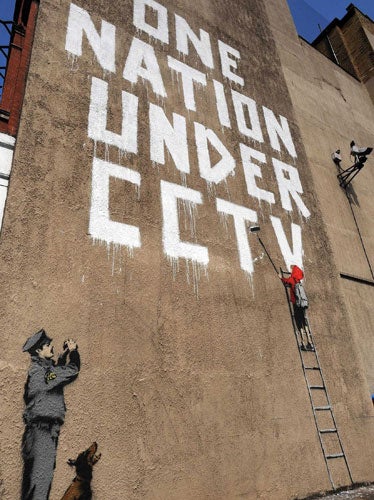Peers warn surveillance state is threat to freedom
Lords committee seeks dramatic reduction of intrusion into private life

Your support helps us to tell the story
From reproductive rights to climate change to Big Tech, The Independent is on the ground when the story is developing. Whether it's investigating the financials of Elon Musk's pro-Trump PAC or producing our latest documentary, 'The A Word', which shines a light on the American women fighting for reproductive rights, we know how important it is to parse out the facts from the messaging.
At such a critical moment in US history, we need reporters on the ground. Your donation allows us to keep sending journalists to speak to both sides of the story.
The Independent is trusted by Americans across the entire political spectrum. And unlike many other quality news outlets, we choose not to lock Americans out of our reporting and analysis with paywalls. We believe quality journalism should be available to everyone, paid for by those who can afford it.
Your support makes all the difference.The vast growth of surveillance and data collection risks undermining freedoms vital to the British way of life, a group of eminent peers is warning today.
In a devastating critique of the spiralling use of CCTV, databases and information sharing, they warn that the growth of information collected about every man, woman and child in Britain is a "serious threat" to principles at the heart of the constitution. The Lords Constitution Committee, which includes the former law lord, Lord Woolf, and the former attorney generals, Lord Lyell and Lord Morris of Aberavon, call in a report for new safeguards to prevent government and private databases damaging historic rights to privacy and civil liberties.
Committee chairman Lord Goodlad, a former Conservative minister, warns: "The huge rise in surveillance and data collection by the state and other organisations risks undermining the longstanding traditions of privacy and individual freedom which are vital for democracy."
He adds: "The UK now has more CCTV cameras and a bigger national DNA database than any other country. There can be no justification for this gradual but incessant creep towards a situation where every detail about us is recorded and pored over by the state."
The peers warn that the "collection and processing of personal information has become pervasive, routine, and almost taken for granted."
The report is being published as ministers prepare proposals to gain unprecedented access to details of every email, internet connection and telephone call made in Britain. Proposals to allow ministers to sanction the sharing of confidential personal data across Whitehall and beyond are also being debated by MPs.
But peers warn that the expansion of surveillance "represents one of the most significant changes in the life of the nation since the end of the Second World War."
They write: "There has been a profound and continuous expansion in the surveillance apparatus of both the state and the private sector."
The report calls for a dramatic slimming of the national DNA database, arguing samples should not be kept if people are not charged or convicted, and insisting the law should be changed to ensure DNA samples given by volunteers are removed.
The peers call for senior judges to oversee surveillance. They say ministers should review the powers of local councils to authorise surveillance and say compensation should be paid if people are monitored unlawfully by police or the security services. They also demand that a powerful committee of MPs and peers be established to oversee the data powers of the state.
Dominic Grieve, the shadow Justice Secretary, said: "This is a damning indictment of the reckless approach of this Government to privacy. Ministers have sanctioned a massive increase in surveillance over the last decade, at great cost to the taxpayer, without properly assessing its effectiveness or protecting the privacy of innocent people."
David Howarth, the Liberal Democrat justice spokesman, said: "This highlights how the Government has ridden roughshod over our freedoms in establishing its surveillance state. Ministers would do well to remember the British state belongs to the British people, not the other way around."
Shami Chakrabarti, director of pressure group Liberty, said: "Our postbag suggests the House of Lords is more in touch with public concerns than our elected Government."
Join our commenting forum
Join thought-provoking conversations, follow other Independent readers and see their replies
Comments